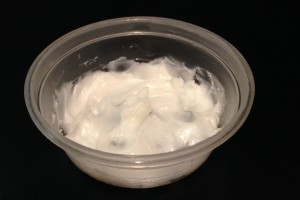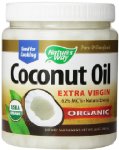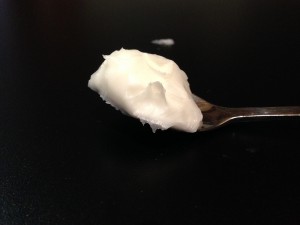Coconut oil has long been known for its many uses, from cooking to skin care. In recent years, coconut oil has also become well known for its teeth whitening abilities. Coconut oil is gaining a reputation as an effective, natural teeth whitener.
Coconut oil is a natural source of lauric acid, which has antibacterial, antifungal, and antiviral properties. This makes it the perfect choice for use as a mouthwash and teeth whitener. When swished in the mouth, coconut oil binds to the bacteria and plaque that cause discoloration, and helps remove them. This is known as “oil pulling” and has been used as a traditional remedy for years.
When coconut oil is used as a teeth whitener, it should be swished in the mouth for 10-20 minutes, then spit out. This helps to remove any bacteria and plaque that has built up on the teeth, and helps to whiten them. It is important to note that coconut oil is not a substitute for regular dental care, such as brushing and flossing.
Coconut oil is also a natural source of antioxidants, which help to protect the teeth from damage and decay. The oil also contains vitamin E, which helps to protect the gums from infection and irritation.
Coconut oil can be used as a teeth whitener on its own, or in combination with other ingredients. For example, baking soda can be added to the oil to create a paste that can be used to brush the teeth. This helps to remove any stubborn stains, and helps to whiten the teeth.
Overall, coconut oil is an effective, natural teeth whitener. It helps to remove bacteria and plaque, and can help to protect the teeth from damage and decay. It is important to note, however, that coconut oil is not a substitute for regular dental care.
Step–by–step guide and explain in detail each step to using Coconut oil for teeth whitening
- Step 1: Purchase a high-quality, organic, cold-pressed coconut oil. Make sure it is unrefined and doesn’t contain any additives or preservatives.
- Step 2: Put a tablespoon of the coconut oil in your mouth and let it sit for 10-15 minutes. This is known as “oil pulling.”
- Step 3: Swish the oil around your mouth for 10-15 minutes, being careful not to swallow it. During this time, the oil will help to remove plaque from your teeth and reduce bacteria in your mouth.
- Step 4: Spit the oil out into a paper towel or in the trash. Do not swallow it!
- Step 5: Rinse your mouth with warm water.
- Step 6: Brush your teeth with a whitening toothpaste.
- Step 7: Repeat the oil pulling process 2-3 times per week for optimal results.
Coconut oil can be an effective and natural way to whiten your teeth. It can remove plaque, reduce bacteria, and help to brighten your smile. Follow these steps to get started with coconut oil teeth whitening.
Precautions and safety measures
While Coconut oil is a natural and relatively inexpensive option, it is important to take certain precautions and safety measures when using coconut oil for teeth whitening.
- It is important to recognize that coconut oil is not a magical solution for teeth whitening. While it is possible that some users may notice a slight change in the color of their teeth, it is unlikely that drastic results will be achieved. Therefore, it is important to have realistic expectations when using coconut oil for teeth whitening.
- It is important to be mindful of the method of application. Coconut oil should be used in small amounts and applied with a soft toothbrush. It is important to avoid using too much force when brushing with coconut oil, as this may cause damage to the enamel of the teeth.
- It is important to note that coconut oil should not be used in place of regular dental hygiene practices. It is still important to brush and floss twice a day and to visit the dentist regularly. Coconut oil should be used in addition to, not instead of, regular dental hygiene practices.
- It is important to be aware that there can be side effects associated with coconut oil. Some people may experience an upset stomach or a bad taste in their mouth after using coconut oil. If this occurs, users should stop using coconut oil and consult a doctor.
In conclusion, it is important to take certain precautions and safety measures when using coconut oil for teeth whitening. While it is a natural and relatively inexpensive option, it is important to be aware of potential side effects and to use coconut oil responsibly.
How does Oil Pulling with Coconut Oil Help to Whiten your Teeth?

Coconut Oil for Whiter Teeth
Oil Pulling has been used for thousands of years as an Indian folk remedy and involves swishing the oil around in your mouth. The Indians probably used oils such as sunflower oil, but I prefer Coconut Oil as it contains Lauric Acid, which is antimicrobial and kill fungi, viruses and bacteria. Coconut Oil also taste ok, some people find it quite pleasant.
The idea behind oil pulling is that the harmful bacteria in your mouth will adhere to and dissolve in the oil. There are thousands of bacteria in your mouth and if it is not removed regularly it will cause cavities, gum disease and bad breath. The bacteria build-up is also responsible for plaque that can make your teeth appear yellow, if not removed.
Does Oil Pulling Bleach Your Teeth?
No it does not. However, the presence of plaque, tatar and other unwanted chemicals from your food will make your teeth appear yellow. Especially tatar often has a very yellow or dark brown color. Studies have shown Oil Pulling to reduce the amount of bacteria including Streptococcus Mutans (which play a large role in plaque buildup and tooth decay). Most people find that their teeth appear whiter and shinier after about 2 weeks of using oil pulling, and that would be because their oral health and hygiene has improved.
Other oral benefits of using Coconut Oil rinse
As the Coconut Oil reduces the bacteria in the mouth, it will also help to reduce gum disease (gingivitis). Gingivitis is inflammation of the gingival (gums) due to bacteria in the plaque that’s not removed thoroughly on a regular basis.
Halitosis or bad breath goes hand in hand with poor oral hygiene, gingivitis and periodontitis. It goes without saying that improved oral hygiene and health will reduce halitosis.
Tips for maximizing results
Coconut oil has natural antibacterial and anti-inflammatory properties that can help reduce plaque buildup, freshen breath, and even whiten teeth. With some simple tips and tricks, you can maximize the results you get from using coconut oil to whiten your teeth.
- First, it’s important to choose the right type of coconut oil. Virgin coconut oil is the most natural form and is the best option for teeth whitening. It’s also important to remember that coconut oil should never be heated or microwaved, as this can cause it to become rancid and potentially lead to other health issues.
- Once you’ve chosen the right coconut oil, it’s time to start whitening. The most common method is to swish the oil in your mouth for about 10-20 minutes. This is referred to as “oil pulling” and can help to reduce plaque buildup and whiten teeth. It’s important to spit out the oil after swishing, and never swallow it.
- Another method for using coconut oil for teeth whitening is to use it as a toothpaste. Simply mix equal parts of coconut oil and baking soda, and brush your teeth with the mixture. Baking soda is a natural whitening agent, and combined with the antibacterial properties of the coconut oil, it can help to remove plaque and whiten teeth.
- Finally, you can apply coconut oil directly to the surface of your teeth. Using your finger, rub a small amount of coconut oil onto your teeth and leave it on for about 10 minutes. This helps to reduce plaque buildup and whiten teeth, as well as freshen breath.
By using these tips and tricks, you can maximize the results you get from using coconut oil to whiten your teeth. Coconut oil is an effective, natural way to whiten teeth without harsh chemicals. So, give it a try and see the amazing results for yourself!
Common mistakes to avoid
Coconut oil is often touted as a natural way to whiten teeth. However, there are some common mistakes to avoid when using coconut oil for teeth whitening.
- The first mistake to avoid is using too much coconut oil. It is important to use only the recommended amount of coconut oil, as too much can cause irritation and damage to the teeth and gums. It is also important to avoid overusing coconut oil. Overusing coconut oil can lead to an uneven result, as the oil can build up in some areas and not others.
- Another mistake to avoid is using coconut oil as a substitute for regular dental hygiene. Coconut oil should not be used as a substitute for brushing and flossing your teeth. Coconut oil should only be used in addition to your regular dental hygiene routine.
- It is also important to be aware of the type of coconut oil you are using. Some types of coconut oil may contain ingredients that can be harmful to your teeth. Always check the label of any coconut oil product before using it.
- Finally, it is important to choose the right coconut oil for your needs. Some people opt for a whitening coconut oil, but this may not be the best option for everyone. Some coconut oil products may be too abrasive for sensitive teeth, so it is important to choose a product that is suitable for your teeth.
In conclusion, using coconut oil for teeth whitening can be a great way to achieve a brighter, whiter smile. However, there are some common mistakes to avoid when using coconut oil for teeth whitening. Be sure to only use the recommended amount of coconut oil, do not use it as a substitute for regular dental hygiene, check the label of any coconut oil product before using it, and choose the right coconut oil for your needs. With these tips, you can safely and effectively whiten your teeth with coconut oil.
Directions on the use of Coconut Oil
- I recommend you use it in the morning before you brush your teeth. Perhaps while you shower.
- Take a tablespoon of coconut oil and put it in your mouth. You may need to keep it in your mouth for a minute or chew on it to soften it first.
- Swish, “push” and “pull” the oil through your teeth for about 15 minutes.
- Spit it out, rinse with water and then brush and floss your teeth.
Do not expect the whiter than white smile you may see on bleaching adverts, but most people find that they did benefit from using Coconut Oil rinse, not just because their teeth seem whiter but also because of improved oral health.
How to maintain the results
As with any teeth whitening method, it is important to maintain the results obtained from using coconut oil. This essay will discuss the steps necessary to maintain the results of using coconut oil for teeth whitening.
- First, it is important to maintain good oral hygiene. Brushing your teeth twice a day, flossing daily, and using a fluoride-containing mouthwash are all essential to maintaining the results of coconut oil teeth whitening. This will help to remove any residual oil and ensure that your teeth stay clean and healthy.
- Second, it is important to use a whitening toothpaste to help maintain the results of coconut oil teeth whitening. Whitening toothpaste is formulated to help remove surface stains and discoloration, which can help to keep your teeth looking brighter and whiter. Additionally, a whitening toothpaste can help to reduce the buildup of plaque and tartar, which can cause discoloration.
- Third, it is important to minimize your consumption of foods and drinks that can stain your teeth. This includes dark-colored beverages such as coffee, tea, and red wine, as well as sugary and acidic foods. These foods and drinks can cause staining, which can be difficult to remove and can cause discoloration. Additionally, it is important to avoid smoking and other tobacco products, as these can also cause discoloration.
- Finally, it is important to have regular professional cleanings. Professional cleanings help to remove plaque and tartar buildup, which can contribute to discoloration. Additionally, your dentist can provide additional whitening treatments to help maintain the results of coconut oil teeth whitening.
In conclusion, it is important to maintain the results of coconut oil teeth whitening. This includes maintaining good oral hygiene, using a whitening toothpaste, minimizing the consumption of staining foods and drinks, and having regular professional cleanings. Taking these steps can help to ensure that your smile stays bright and white.
Alternatives to using Coconut oil for teeth whitening
Coconut oil has become a popular option for teeth whitening due to its natural properties, but it is not the only option. If you are looking for an alternative to coconut oil for teeth whitening, here is a list of some of the most popular options.
-
Hydrogen peroxide:
Hydrogen peroxide is a natural bleaching agent and is often used to whiten teeth. It is a safe and effective option, although it can cause some temporary sensitivity. It is important to dilute hydrogen peroxide before using it on your teeth and to not use it more than once a week.
-
Baking soda:
Baking soda is another natural option that can be used to whiten teeth. Baking soda is mildly abrasive, which can help remove surface stains, but it can also be damaging to enamel if used too frequently. It is important to use baking soda with caution and not to use it more than once a week.
-
Activated charcoal:
Activated charcoal is a popular method for teeth whitening as it is believed to absorb toxins and help remove surface stains from teeth. It is a safe option, although it can be messy to use. It should also be used with caution as it can be abrasive and can damage the enamel of your teeth if used too frequently.
-
Teeth whitening strips:
Teeth whitening strips are a popular method for teeth whitening and can be purchased over the counter. They are a convenient option as they are easy to use and mess free, although they can cause some temporary sensitivity.
-
Professional teeth whitening:
Professional teeth whitening is a popular option and is often recommended by dentists. It is a safe and effective option, although it is more expensive than other methods.
No matter what option you choose, it is important to use it with caution and to consult your dentist before using any whitening method. Coconut oil is a popular option for teeth whitening, but it is not the only option. There are many alternatives available and it is important to weigh the pros and cons of each option before deciding which one is right for you.
Other benefit of Coconut oil

Coconut Oil
There are so many claimed benefits for Coconut oil, I can honestly not tell if they are true, but I will list some of the possible benefits. You can decide what to believe.
Coconut Oil contains lauric acid that converts to monolaurin in the human body. This supposedly helps the body dealing with viruses and bacteria that cause diseases such as influenza, herpes and even HIV. They also claim that it helps fighting harmful bacteria.
- Hair care: It is effective in reducing protein loss and helps healthy hair growth and makes it shiny.
- Skin care: Coconut oil is an effective moisturizer and helps preventing premature aging of the skin. Apparently it also helps for treating skin problems including dermatitis, eczema, psoriasis and other skin infections.
- Stress relief: A gentle massage with Coconut oil is soothing and will help removing stress.
- Weight loss: It contains short and medium-chain fatty acids that help taking off excessive weight; it is easy to digest and helps in healthy functioning of the thyroid and endocrine system.
- Strengthens the immune system: This is because Coconut Oil contains lauric acid, capric acid and caprylic acid with antifungal, antibacterial and antiviral properties.
- Digestive system: It helps to prevent digestion related problems including Irritable Bowel Syndrome and helps in the absorption of vitamins, minerals and amino acids.
- Bones: As the oil helps the body to absorb minerals including calcium and magnesium, it may be beneficial to people prone to osteoporosis.
- Treatment of Candida: Coconut oil has been shown to prevent or even cure Candida and provides relief from the inflammation caused by Candida.
- Kidney: They claim Coconut oil helps to prevent kidney and gall bladder diseases
(and even Liver disease). - Pancreatitis: It is believed to be useful in treating pancreatitis.
- Diabetes: As Coconut oil possibly helps to control blood sugar and improves the secretion if insulin, it may help preventing or controlling diabetes.







